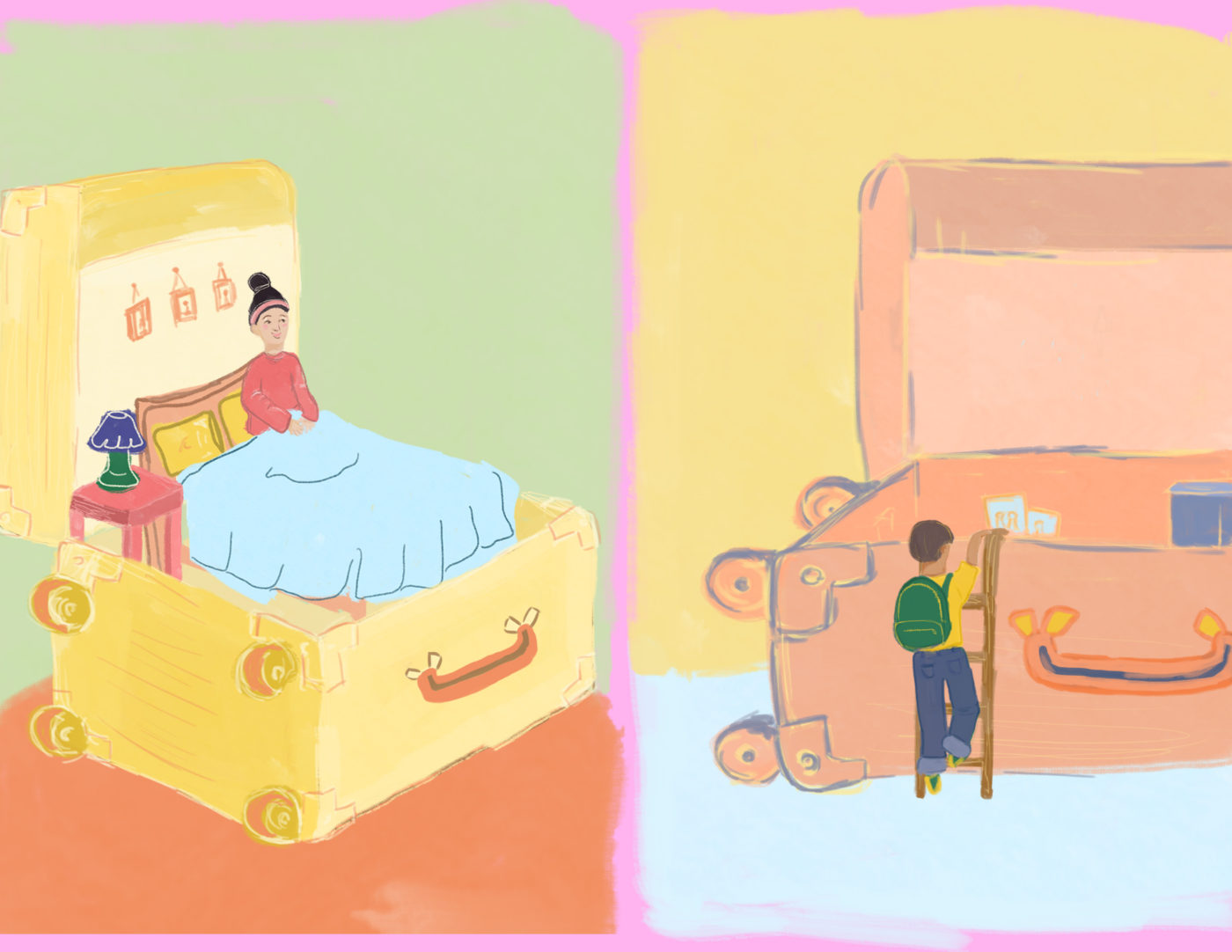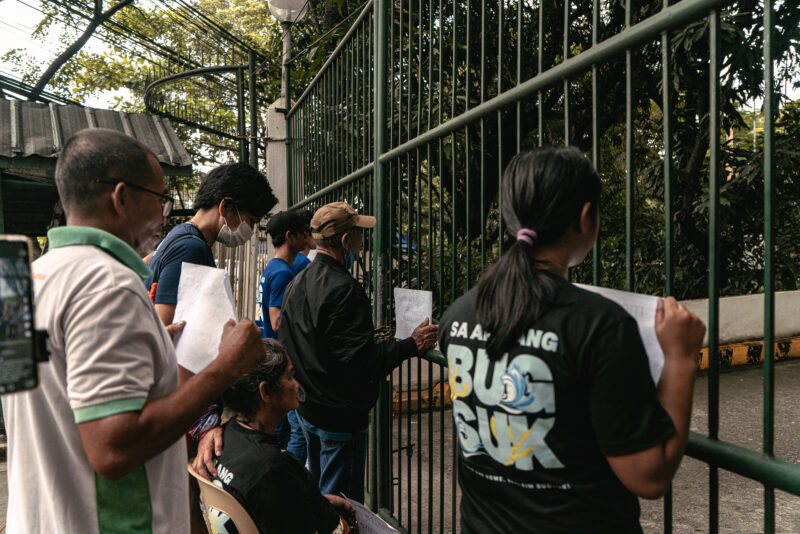To the Atenean dormer, returning home can be just as much of a journey as leaving.
A rollercoaster of emotions is what the last few weeks of a semester thrusts upon university students. While one has to deal with both the stress brought about by final requirements and the anxiety over the pending release of grades, for student dormers, there is also the sweet anticipation of coming home.
The holidays offer a hiatus of sorts for many students, but for student dormers, this break is an opportunity to return to their families and hometown circles. However, after the initial excitement of being back home washes away, student dormers are faced with the challenge of acclimatizing back into their home lives after a few semesters away. They and their loved ones find respite and comfort in being reunited together, but each visit is a navigation of adjustment.
Independence coming home
“The idea of going back home and seeing everyone again is deeply heart-warming. However, there really is this feeling na nagbago na ako because although ‘home’ is familiar, it’s just not what I’m really used to anymore,” shares Boz Suaybaguio, a senior who hails from Davao City.
There seems to be this discombobulating feeling when returning to a land that, not until recently, remained in the faraway echoes of your childhood. Everything can feel like it’s still in the right place like it always has been except for one thing: You.
“When I’m here in Manila, I’m very vocal and I can say what I want. I feel more understood here,” shares Monica Trinidad, a sophomore student from Cagayan de Oro. “But when I’m at home, sometimes I want to say something but I just don’t, because I know that our beliefs aren’t the same anymore and that bringing it up would just cause unwanted tension.”
Home may be where the heart is but what happens when the heart learns to grow and sail away from “home”? It’s as if you were to trying to jump back into your favorite pair of skinny jeans after packing on those holiday pounds—a good amount of discomfort followed by an acceptance of the fact that some things may have changed.
Since the beginning of Trinidad’s stay in Manila, a chance to return home never fails to fill her with feelings of excitement. She remembers her favorite holiday memories to be moments of joy and togetherness. However, it isn’t always warm milk and cookies as different ideas can put a damper on festivities. “When I reached Manila, my worldview really changed and, so with it I let go of some of the beliefs I [used to share] with my family. [Although I love my family,] I’ve got to stand up for my beliefs [as well],” she shares.
Returning home can be a blend of sweet and bitter, and not always the best flavor for your warm holiday beverage.
Return into the fold
“The first night I came back to Seattle [and] I went to bed, I was sad that I was home,” says Marquis Alindongan, who grew up in Seattle, Washington and is now a member of the Ateneo baseball team. He moved to the Philippines for university while his family stayed behind. “It’s really weird. I was genuinely sad. You realize that everyone just kept on going with their life and you’re back here trying to catch up [with] that,” he says.
Every day back home involves active readjustment for both the family and the student dormer. Families have to “reconfigure” in order for the dormer to fit back into the family unit while the dormers, in turn, have to readjust to assume their place in the family once more.
Alindongan has only been back to Seattle twice since moving away two years ago and only returns during the summer break. He has six siblings, two of which are below 12 years old. He laments on missing the formative years of his younger siblings’ growth. “It’s different. I don’t get to witness that,” says a contrite Alindongan.
But it’s not just family that student dormers find themselves trying to fit back into. Friends also have different experiences while separated and this may cause a shift in the relationships.
Tamara Damary is a sophomore from Geneva, Switzerland who has also spent some time living in Davao where she studied at the Ateneo de Davao University before coming to Manila. As she enumerates the challenges of long-distance friendships, she adds that it’s inevitable that things change while separated from one’s friends.
“Then you have to catch up with [how they’ve changed],” she says. “It’s not too difficult, but it’s still there. It’s definitely there.” Damary explains that youth actually plays a large role. In youth, one is constantly exposed to life changes – changes that uncontrollably extend to one’s friendships.
Suaybaguio returns to Davao for the holidays. He recalls his first few days of settling in to be periods of joyous reunions and celebrations. But after having enough rounds of the proverbial beers of reminiscence with his buddies, their stark differences start to show. “Although [my friends] may look the same, the way they talk and do things have really changed,” says Suaybaguio. “Their beliefs and their habits have really changed, then there is this moment of awkwardness where you don’t know how to act with them anymore.”
Returning home is an exercise in quick adjustment for student dormers. It is a feat to have to constantly reposition themselves in personal circles as seamlessly as possible. Yet, after every attempt to assimilate, student dormers are forced to uproot themselves once more.
Back to the hustle
The end of the holidays signifies more than just the start of a new semester for student dormers. For them, it means briefly turning away from their hometowns once more for another period of time away from home.
Living away from home has become a unique social and intellectual experience that has been normalized—and for many, has become a necessity—as part of the so-called “college life.” However, this seemingly nomadic lifestyle has become a challenge of experiencing double the effect of acculturation. The effects can include pressure from not being part of the “dominant” society and feeling the constant need to modify their behavior according to their environment.
“Both times you’re being uprooted,” Damary shares. “You’re settling back down and then you’re being uprooted again.”
In his book Homesick and Happy: How Time Away from Parents Can Help a Child Grow, clinical psychologist Michael Thompson, PhD explains that early experiences of independence away from home for children and adolescents can yield positive effects later in life. Living away can result in a higher self-esteem from developing skills independently and finding a new “community” to bond with. Thompson firmly believes that “the self is not something one finds, [but] something one creates.” However, this continuous process of recreation isn’t always painless for student dormers.
Emotional security is essential for student dormers. A healthy relationship with their loved ones back at home can make them feel that their independence and growth are well supported.
Above all, student dormers need a healthy mindset, a perception that allows them to see that the sacrifices they make actually contribute to their future and that the homesickness they bear is worth it; that home is actually where they make it.
“My life is in the Philippines right now,” says Alindongan, thinking of his home in Seattle. “At this moment, at this segment of my life, that’s where it is.”
What do you think about this story? Send your comments and suggestions here: tgdn.co/2ZqqodZ







